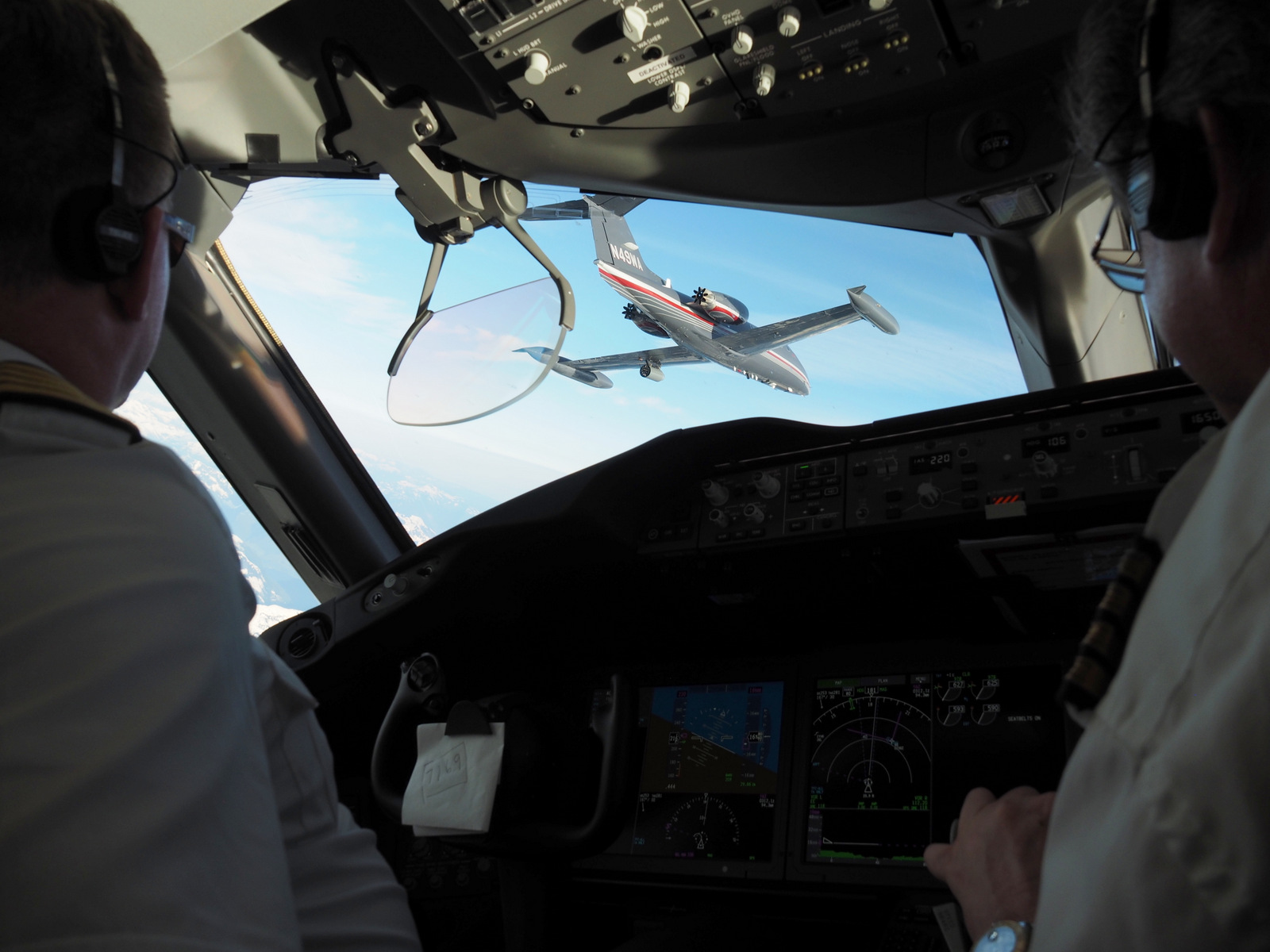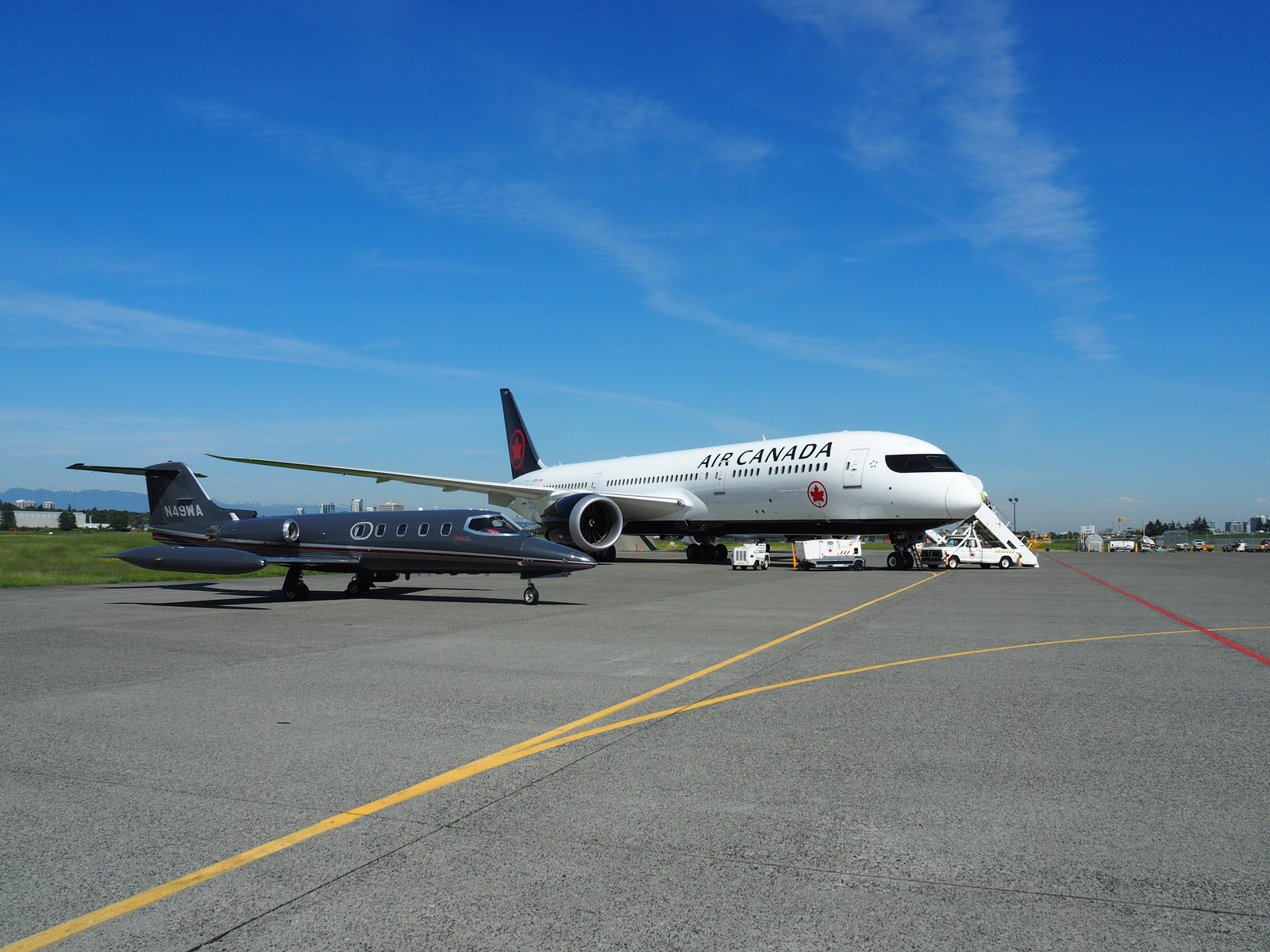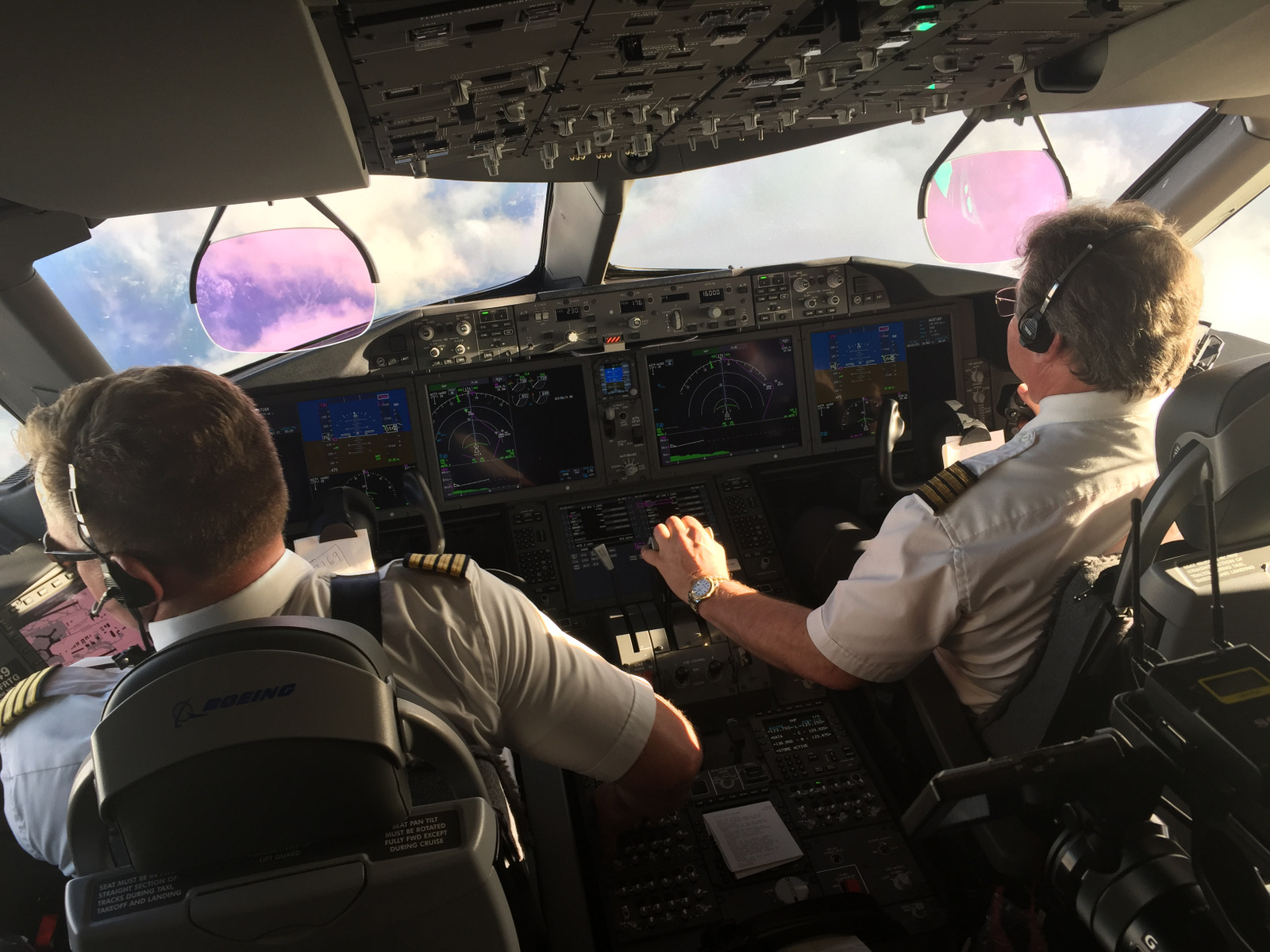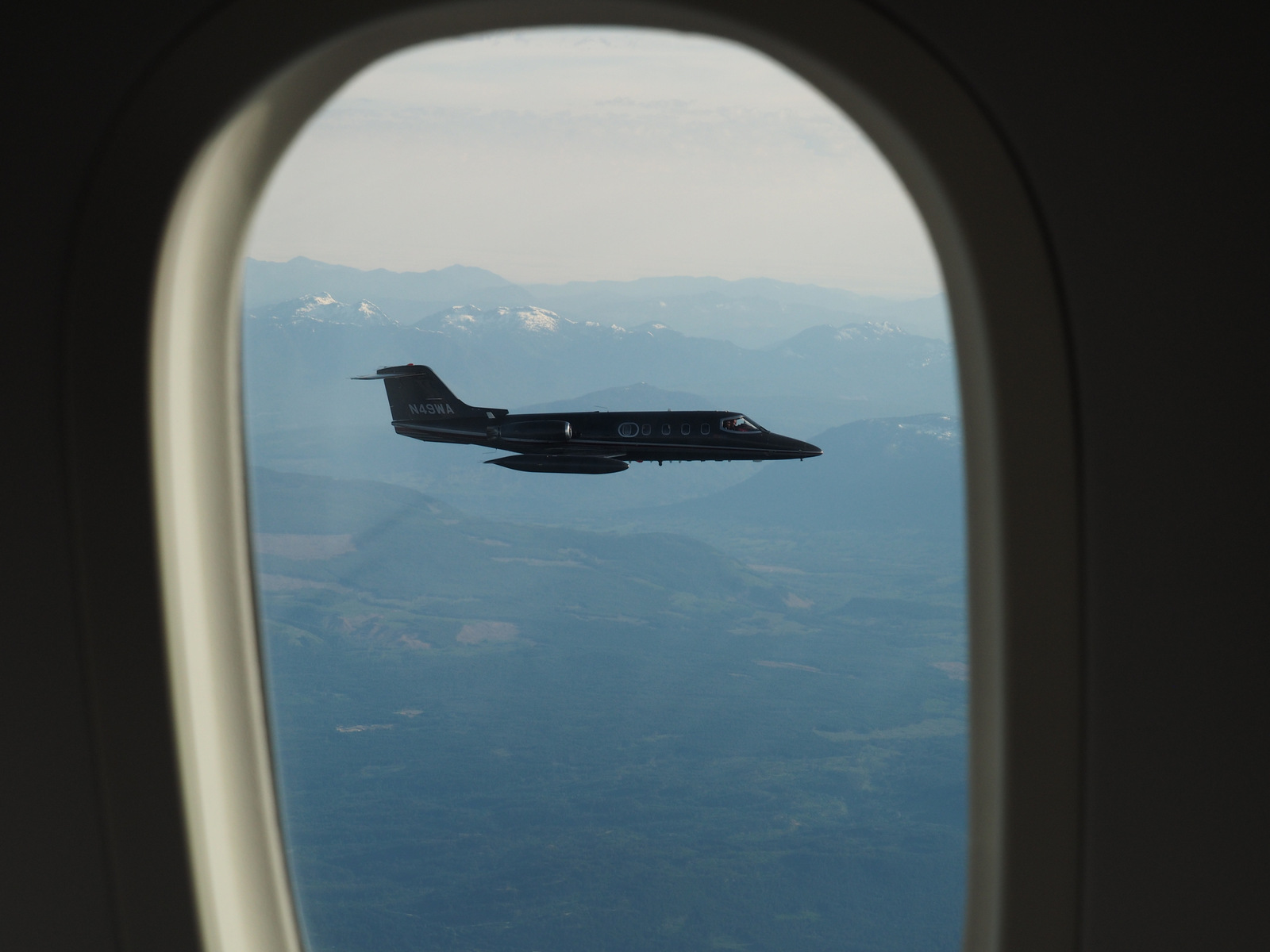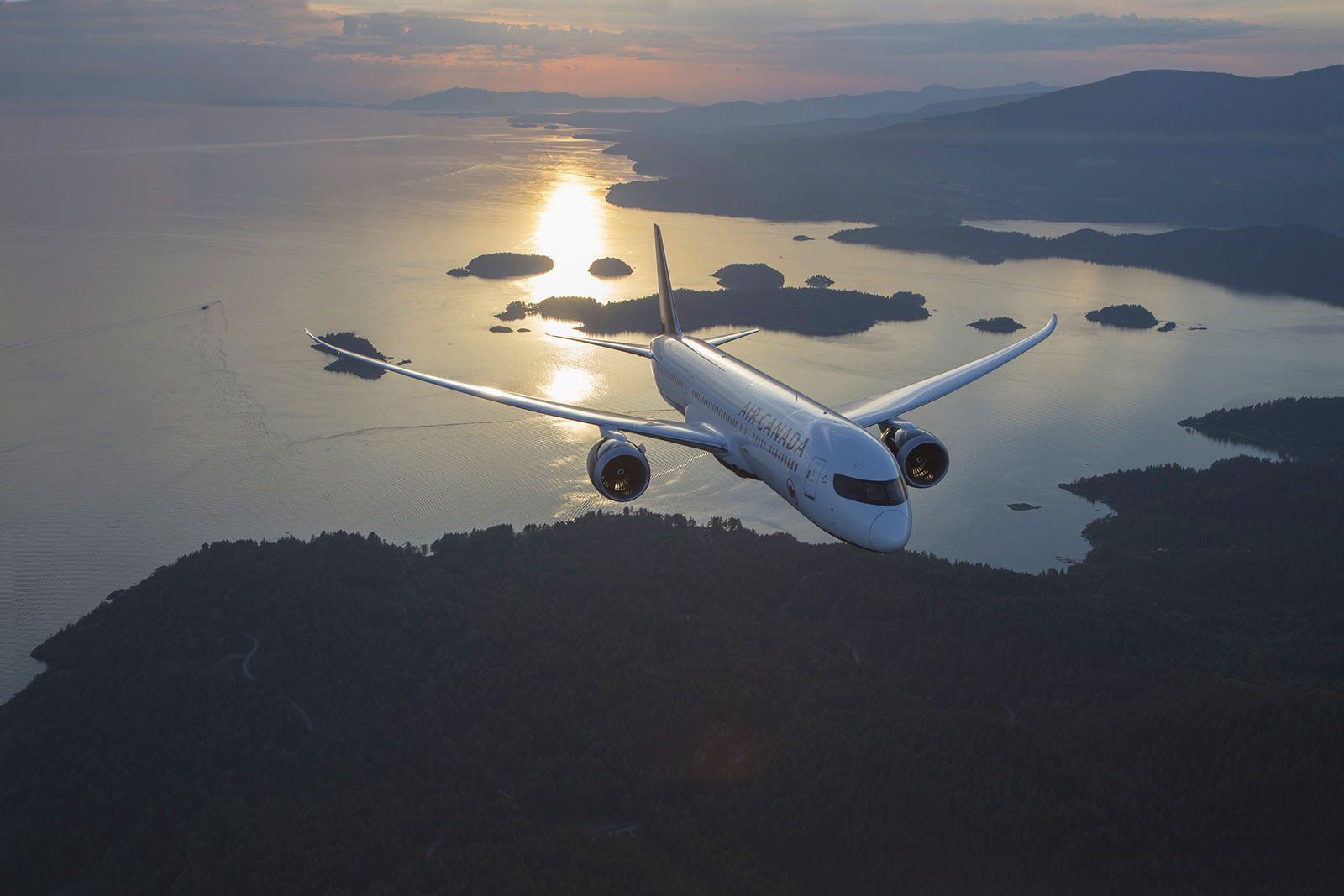Written for CNN Travel – with Jon Ostrower.
“This is not an ordinary flight,” says veteran Air Canada Captain Dave Butler. “We’re going to have some fun today.”
Air Canada had taken a 787 Dreamliner out of normal operation to be an actual runway model for its new corporate rebrand during a complex two-day photo shoot. The final product is pure glamor, but the meticulous creation is a side of the airline industry few get to see.
Only a handful of airline staff and CNN were aboard this 298-seat airliner.
The pristine jetliner had been delivered just days before from Boeing. The customary preflight safety briefing that would typically have been presented by a flight attendant fell to Butler.
New look
For two days in May, the long-range airliner started and ended its flying in Vancouver, British Columbia. The Air Canada plane was chased by a Learjet 25B business jet, flown by Los Angeles-based aerial photographers Wolfe Air Aviation
Air Canada is in the middle of a makeover from the ground up. From uniforms to catering to the paint scheme on its airliners, the carrier is shedding more than a decade of pearlescent blue in favor of black, white and red on its airplanes. The vanity shoot will become the backdrop for the airline’s rebranding
Kevin La Rosa II, pilot and aerial photography coordinator for Wolfe Air, led the team for the high-flying photo shoot
“It’s fun for our team to show up [for] a new livery because we’re all airplane fanatics, too. So we come in and we study the way the paint job looks…we’re literally planning how we’re going to attack it and cover every single part of the aircraft,” said La Rosa.
Jetliner ballet
The final product looks effortless; A piece of advanced machinery caught soaring over the natural beauty of Canada’s West Coast. Capturing such imagery is a ballet where the pilots have to know every move, but the dance of the two aircraft can’t be choreographed in advance. The sky is an unpredictable photo studio.
La Rosa, 31, is a second-generation aerial photographer. His credits include the Marvel movies and nearly every Transformer film. He earned his Screen Actors Guild card flying a helicopter for the 2005 movie “Mr. and Mrs. Smith.”
The cramped flight deck of the modified business jet has three monitors up front to give La Rosa and his co-pilot a look through the lens.
“Anywhere we put our eyes, we have a very quick reference of what the framing looks like,” said La Rosa. “We literally fly the shot. The jet becomes nothing more than a [camera] dolly in the sky.”
The Learjet’s cabin is not a whole lot bigger than a minivan. Packed with a million dollars of high-tech camera gear, flights only last about two hours. The plane’s engines guzzle fuel, but they respond instantly, giving the short-winged Learjet snappy maneuverability. Add an underwing still camera pod and a dark gray paint scheme, and the 40-year-old plane is easily mistaken for something sinister.
In fact, during a low pass over downtown Vancouver on the first evening of filming, police phone lines were flooded with calls from citizens concerned they were witnessing some type of military activity.
Outsmarting an airliner
Aboard the modified business jet was Brian Losito, Air Canada’s corporate photographer who typically spends his days documenting the Montreal-based airline’s fleet from the ground.
“Kevin gets me in the perfect light and the perfect background,” said Losito, who took 2,500 photos on the first day alone. “But if I haven’t got the shot, I’ll ask them. I’m in constant communication.”
During the flight, Capt. Butler handled air traffic communication and co-ordination with the Learjet, while Capt. Mark Watt, an accomplished formation pilot who spends his off-duty time flying at the Reno Air Races, hand flew the 787.
Hand-flying the 787 requires outsmarting the advanced airliner. With steep banks and quick turns planned, Watt learned on an earlier flight to disable the autopilot from automatically righting the jet and leveling its wings while he was maneuvering for the perfect shot.
Every flight has to be done in close coordination with air traffic control. Watt and Butler have to accept responsibility for keeping the airplanes at a safe distance.
Once in formation, the Learjet switches off its location tracking transponder, and the pair becomes a ‘flight of two.’
“We’re the mothership for ATC,” said Watt. The Learjet “can always see us, they never lose sight of us even when we lose sight of them.”
Hazardous flying
Flying the nimble Learjet so close to a 206-foot long Dreamliner is extremely dangerous. La Rosa has to keep a safe distance at all times while getting the perfect shot.
“You just have to adapt. You have to be totally flexible. Safety is number one. If somebody doesn’t like something, we knock it off,” said Watt.
Just like an enormous ship on the water, the 787 creates a wake that can flip a smaller plane if it gets too close in the wrong spot — below and behind the jet’s wings.
“It could damage the aircraft and hurt us,” said La Rosa. “You can feel when you’re right next to it. I’ve never hit a wake and I never want to.”
Even as the Lear flew just feet ahead of the 787’s nose, La Rosa could feel the Air Canada jet’s bow wave nudging the tail of the much smaller plane. From the flight deck of the 787, you could hear the rumble of the nearby Learjet’s engines as it pulled in tight.
As a passenger on an empty jetliner, it’s tempting to press your nose up against the window, watching the sleek business jet pull in tight. But the lucky few aboard had to keep their distance. One face in the enormous windows might spoil an otherwise perfect shot.
